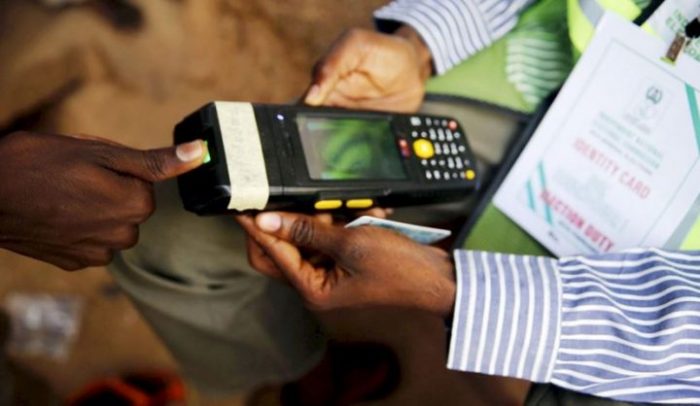Firm has slammed N77bn lawsuit on INEC and FG for theft of BVAS and IREV Idea.
NewsOnline reports that Adah Obekpa, a US-based medical doctor, and his company, Renaissance Network Africa (RNA), have instituted a legal action against the Independent National Electoral Commission (INEC) and the federal government.
The plaintiffs dragged the electoral umpire and the government to court over an alleged failure to recognise them as the originators of the e-voting system used during elections.
ALSO: Kwankwaso Accuses INEC Of Fraudulently Allocating Votes To Tinubu
The suit was filed before the Abuja federal high court on March 21.
In the suit marked FHC/ABJ/CS/391/2023, the plaintiffs are praying the court for an order directing the defendants to pay N77 billion as compensation and another N500 million as damages for allegedly using their idea without giving credits.
In the statement of claim, the 1st plaintiff (Obekpa) avered that “he and his team which includes the 2nd plaintiff came up with an innovative and novel I-voting system that will ensure free, fair and credible elections for sustainable democracy in Nigeria as far back as 2010”.
He claimed that the “I-voting system proposal was conceived by him to ensure that valid votes cast in any elections in Nigeria are not altered or eliminated from the final tally, while invalid votes are also not allowed or counted in the final tally by unscrupulous elements who aid desperate politicians to rig elections”.
Obekpa said he flew to Nigeria to meet with Atahiru Jega, former INEC chairman, and they discussed his proposal.
The plaintiffs claim to have deployed resources, both financial and human, to create and design the I-voting proposal for INEC in 2010.
They claim that it is their proposal that has now been christened as BVAS and IREV.
“At the trial, the plaintiffs shall also demonstrate that the INEC Result Viewing Portal (IREV) was their content proposal to the 1st defendant in 2010,” the plaintiffs said.
“The plaintiffs aver that they retain the exclusive and assignable legal right to the I-voting proposal to INEC document as the originators of the same.
“It is averred by the plaintiffs that the 1st defendant deliberately suppressed the I-voting proposal which they submitted to it by not reaching out to them in other to take sole credit for the same.”
Consequently, they are praying the court for a declaration that the I-voting proposal is the same as the BVAS and IREV.
They also want the court to direct the federal government “to publicly recognize and acknowledge the plaintiffs and their team who were involved in the preparation and design of the I-voting proposal to the 1st defendant since 2010”.














